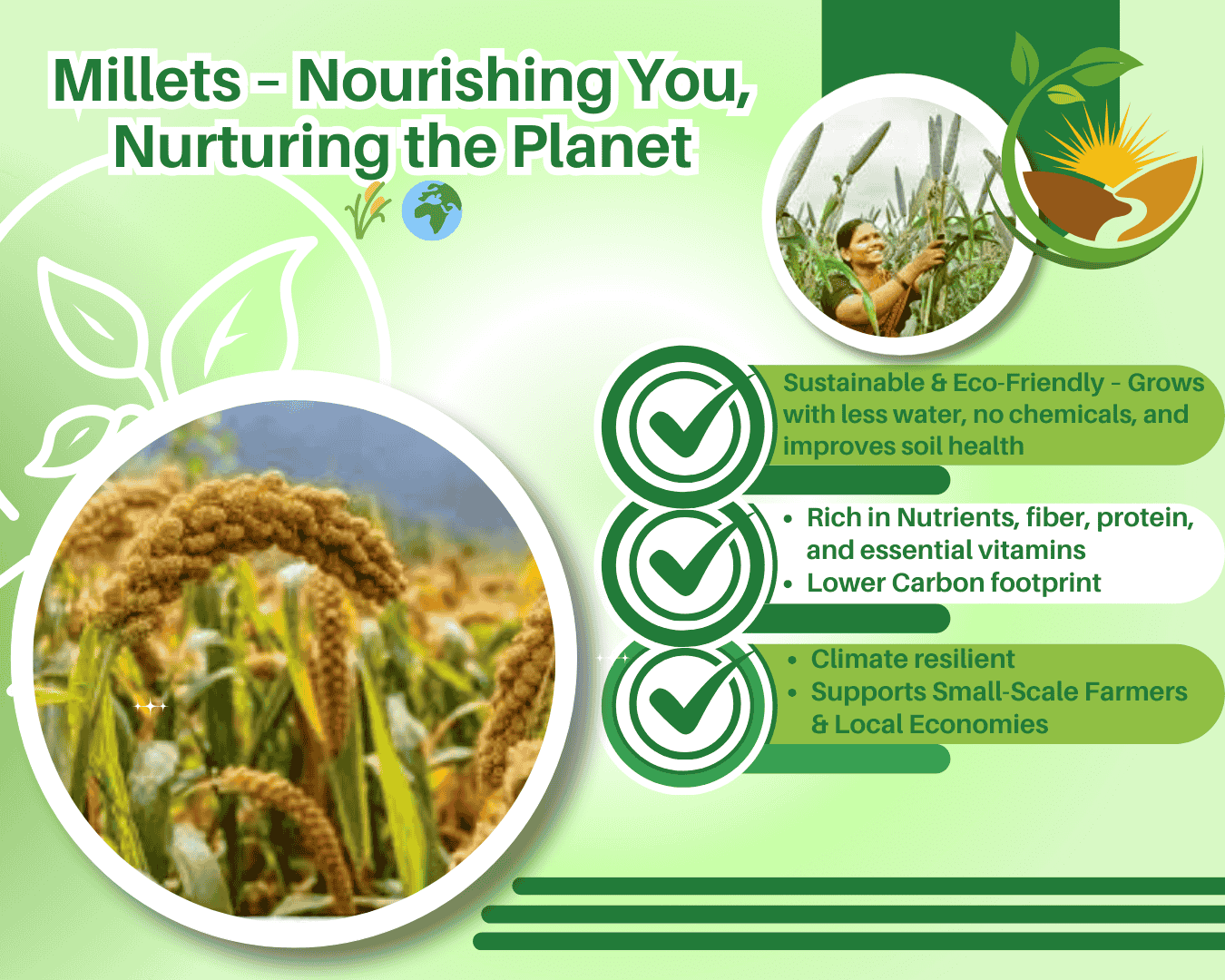

Millieartth – Nourishing You, Nurturing the Planet
At Millieartth,
we bring you the goodness of millets—ancient superfoods packed with nutrition
for a healthier you and a happier planet. Our range of millet-based products,
from muesli and chocos to idli mix, pasta, and baby cereal, is crafted to fuel
your body with natural, wholesome, and guilt-free nourishment.
Millets are
highly sustainable for human consumption due to their low environmental impact,
resilience to climate change, and rich nutritional profile. Here’s why they are
an excellent choice for sustainable diets:
-
Low Water & Resource Requirements
Unlike rice and wheat, millets require significantly less water to grow. They thrive in arid and semi-arid regions with minimal irrigation, reducing water stress and
promoting sustainable agriculture. -
Drought & Pest Resistance
Millets are naturally resistant to pests and diseases, reducing the need for chemical pesticides and fertilizers. Their resilience to drought makes them a reliable crop in the face of climate change.
-
Short Growth Cycle & Diverse Adaptability
Millets have a short cultivation cycle (as little as 70-100 days) and can grow in diverse soil types, including poor or degraded land, making them an ideal crop for small farmers and sustainable food systems.
-
Soil Health & Biodiversity
Millets improve soil fertility by promoting crop rotation and reducing soil egradation. They are often grown in mixed farming systems, enhancing biodiversity and supporting ecological balance.
-
Nutritional Benefits & Food Security
Millets are rich in protein, fiber, iron, and essential minerals, making them a nutritious alternative to refined grains. Their high fiber content promotes gut health, and their low glycemic index helps regulate blood sugar levels, making them
ideal for diabetes management. -
Lower Carbon Footprint
Since millet farming requires fewer inputs like synthetic fertilizers and irrigation, its overall carbon footprint is lower than that of rice or wheat. This makes millet an environmentally friendly grain choice.
-
Supports Small-Scale Farmers & Local Economies
Millets are often cultivated by small and marginalized farmers in developing regions. Promoting millet consumption supports local economies and encourages sustainable farming practices.
By choosing millets, consumers contribute to a healthier planet and a more resilient food system, while also benefiting from a nutrient-dense diet. Let’s join hands together in embracing a healthier lifestyle while making a positive impact on the environment! 🌱💚
